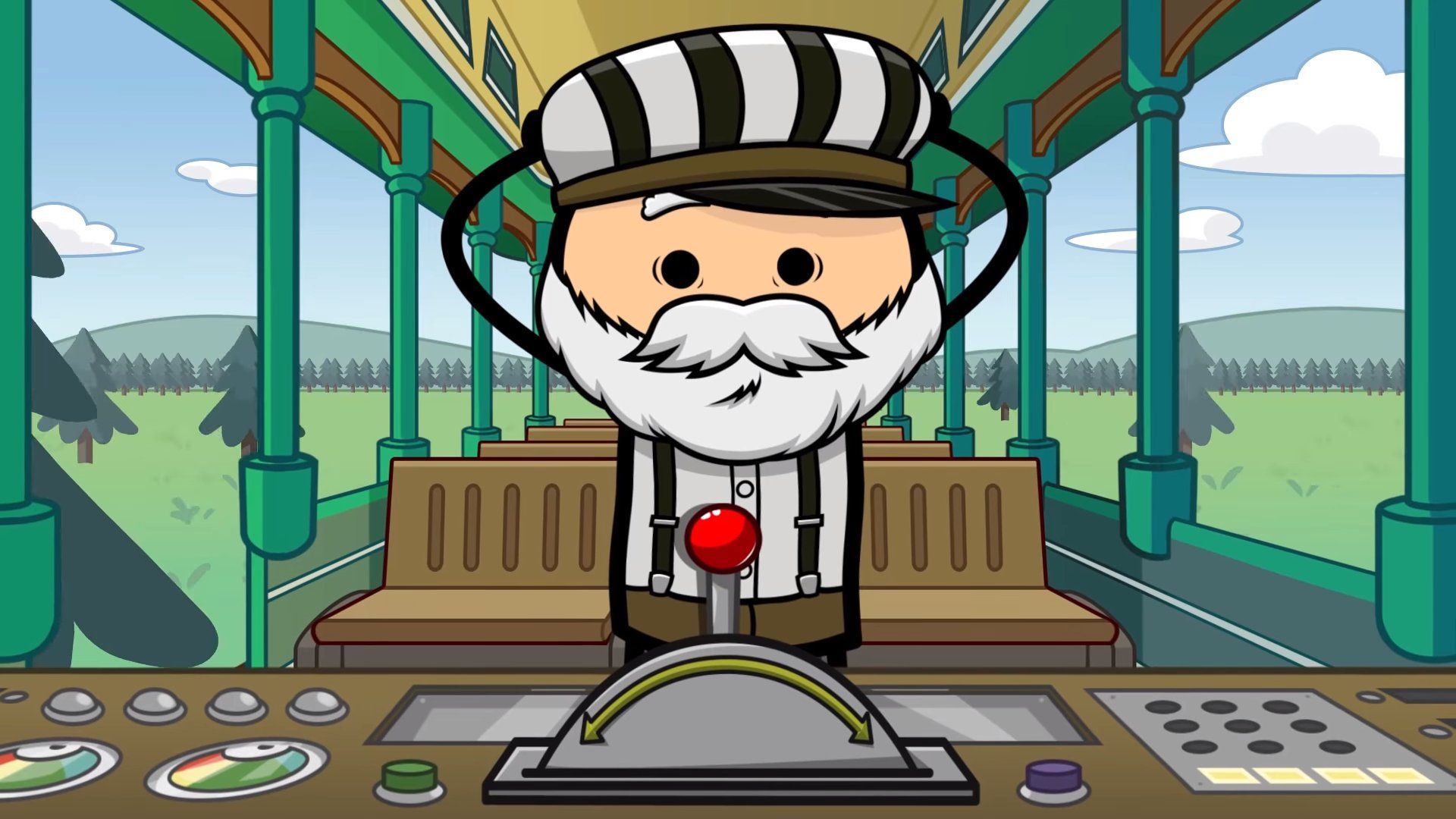
Early in our design phase my partner and I discovered a shared love of party games from the classic and always-available Never Have I Ever and Two Truths and a Lie to purchasable box sets like Cards Against Humanity and Exploding Kittens. They’re easily accessible, have minimal setup, cater to a wide audience, and make it easy to engage with friends and strangers in a structured yet spontaneous gameplay.
Trial by Trolley had all of these qualities and my favorite trend in party games: absurdity and profanity.
Mechanics and Gameplay
In Trial by Trolley two players or teams take turns building tracks of unsuspecting(ish) victims for the trolley to crush. Players place 1 random innocent card and 1 chosen innocent card on their track, then 1 guilty card on the other person’s track to sabotage them. An innocent card is someone or something you do not to run over, like Bob Ross. A guilty card is someone or something you do like a bloodthirsty tiger.
Players can place modifiers to alter their track or the other person’s track and improve their chances of not getting squished. Then they make their case.
The third player, the judge, decides which set of victims to annihilate beneath the wheels of public transport and bestow upon the loser a loser token.
Social Engagement and Consequences
My partner and I both enjoyed the argument aspect of Trial by Trolley as it forces players out of their comfort zone to engage with others in safe, fun, and unconventional confrontations. Because of the absurdity and narrative distance between the player and the plot, confrontation isn’t personal or pressing except in the context of winning or losing a game.
That being said one of the common problems with party games is when absurdity or profanity gets out of hand and can become personal(is it a bug or a feature). On one hand, if two players know each other they can “target” someone’s sense of humor or taste to cater the game to their level of comfort. On the other playing a card such as “Undead Osama Bin Laden” against a 9/11 survivor could completely break the state of safe confrontation intentionally or unintentionally. TLDR: Party Games can easily get out of hand.
Rules for Teams and Turn-Order
Another, more rule-driven issue we had with Trial by Trolley was that the game is a little clunky when there are more than 3 players. Because only two tracks are provided and 1 judge oversees them when you have more than 3 players you organize into teams. That’s were things get complicated.
Every round the players rotate the board so that the conductor side is facing the new judge, then the teams are divided “roughly based on the position of this new conductor”. Furthermore, the instructions designate that each player be responsible for one type of card, setting the game up for seven players total but if you have more than that you can share, and if you have less than that one player has double the responsibility.

This stunts team cohesion and collaborative gameplay creating a more “cut-throat” strategy. If you don’t want someone on your team to win, why not throw the round? Furthermore, it’s difficult to establish communication across three players with three separate decks. While not impossible, I struggle to justify the social cost of these team turn-order rules.
Conclusion
All of that being said, I still enjoyed Trial by Trolley and prefer playing games with few people as opposed to many. The absurdity of the game allows easy and low-cost socialization while the life-or-death metaphorical stakes promote healthy competition and argument. I recommend anyone play it next time they feel the urge to run over pedestrians.
